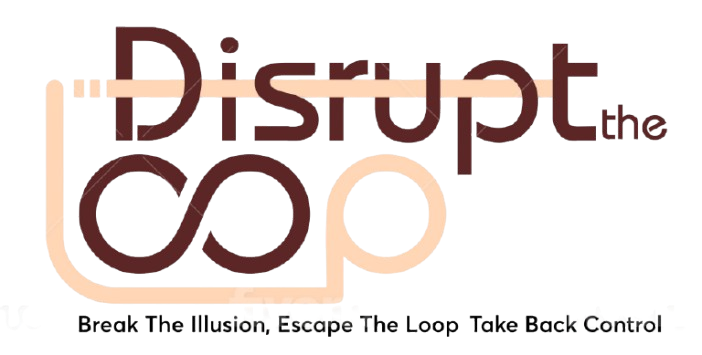Many of us hold an implicit belief that wisdom must be earned through suffering. We lionize stories of struggle, assuming that hardship is the primary gateway to deep understanding. But what if this belief is a cognitive trap—an illusion that distorts our perception of learning, growth, and success?
This post explores the formation of belief systems, how they shape our perception of wisdom, and why we tend to associate pain with knowledge even when alternative pathways exist.
How Beliefs Form: A Cognitive, Emotional, and Social Framework
Beliefs don’t emerge from logic alone; they develop through a combination of cognition, emotion, and relational reinforcement. Understanding these mechanisms helps us see why the belief in suffering-as-teacher is so persistent.
1. Cognitive Models of Belief Formation
Scientific research suggests that beliefs are not static facts but dynamic cognitive structures that evolve through reinforcement. Two models offer key insights:
The Process-Memory Model
This model explains how beliefs form through multiple interconnected processes:
- Perception and beliefs: We interpret experiences through pre-existing mental frameworks.
- Valuation and beliefs: We assign meaning based on how experiences align with our values.
- Memory encoding: The more emotionally intense an experience, the more deeply it is stored.
- Action and prediction: Beliefs guide future behavior and expectations.
Why does this matter? Because suffering is often emotionally intense, making it more “memorable” and seemingly more meaningful than positive experiences.
The Five-Stage Sequential Model
Belief formation can also be viewed as a step-by-step process:
- Precursor: Initial exposure to an idea or experience.
- Search for meaning: Trying to make sense of it.
- Candidate belief evaluation: Assessing its validity and usefulness.
- Belief acceptance: Integrating it into one’s worldview.
- Effects of belief: Behavior and emotional responses based on the belief.
Once a belief like “pain leads to wisdom” reaches the final stage, it influences all future experiences—even when contradicting evidence exists.
Why We Trust Pain as a Teacher
Beyond cognitive models, belief formation is deeply relational and emotional. Our brains are wired to see painful experiences as more valuable for several reasons:
1. The Emotional Anchoring of Pain
Neuroscientific research shows that emotionally charged memories are encoded more deeply than neutral or positive ones. This is why we remember failure more vividly than success—it carries a stronger emotional signal.
- Survival Bias: In evolutionary terms, pain signaled threats that required learning. Those who learned from pain were more likely to survive.
- Cognitive Availability: Painful lessons are easier to recall, making them seem more significant than positive ones.
2. The Social Reinforcement of Struggle
Society glorifies overcoming hardship as the only legitimate path to growth. We idolize:
- Entrepreneurs who “failed 10 times before succeeding.”
- Writers who endured years of rejection before being published.
- Athletes who “pushed through injuries” to reach greatness.
While resilience is valuable, this narrative ignores alternative pathways—such as learning through mentorship, curiosity, or joy.
3. Identity Investment: The Trap of Justifying Past Suffering
A major reason we hold onto the suffering = wisdom belief is that admitting otherwise would mean acknowledging unnecessary pain.
- If suffering wasn’t required, then maybe our past struggles weren’t necessary.
- This creates cognitive dissonance, so we justify hardship as “worth it” rather than question whether there was an easier way.
The Alternative: Can Wisdom Be Gained Without Suffering?
If pain isn’t the only teacher, what are the alternatives? Cognitive flexibility, relational learning, and emotional insight offer other paths to wisdom:
1. Learning Through Reflection, Not Just Experience
- Instead of relying solely on hard experiences, wisdom can come from examining patterns, questioning assumptions, and integrating new perspectives.
- Example: A person doesn’t have to go through financial ruin to learn about smart money management. They can study failures, analyze case studies, and learn proactively.
2. Learning Through Relationships
- Wisdom isn’t just an individual pursuit—it’s also socially transmitted.
- By engaging with diverse perspectives, we can learn from other people’s struggles without personally enduring them.
3. Learning Through Curiosity and Play
- Some of the most profound insights come not from trauma but from exploration and joy.
- Example: Scientific breakthroughs often emerge from experimentation, not desperation.
Breaking Free from the Expensive Wisdom Trap
1. Challenge the “Suffering as Legitimacy” Bias
- Instead of asking, “Did I struggle enough to deserve this?”, ask:
- “What is the most effective way to learn?”
- “What lessons can I absorb without unnecessary hardship?”
2. Separate Growth from Pain
- Hardship can produce growth, but that doesn’t mean only hardship produces growth.
- Example: A child learning to walk falls often, but the learning happens through repetition and encouragement, not suffering.
3. Redefine Wisdom Beyond Struggle
- Wisdom is about pattern recognition, adaptability, and emotional intelligence, not just survival.
- Ask: “What sources of wisdom have I ignored because they weren’t painful enough?”
Conclusion: Rewriting the Story of Growth
The belief that suffering is the only path to wisdom is a powerful but flawed narrative. While struggle can teach, it is not the only teacher.
To cultivate a healthier approach to learning and growth:
✅ Recognize that wisdom can come from curiosity, relationships, and reflection—not just hardship.
✅ Question whether suffering was necessary or simply a byproduct of a less efficient learning process.
✅ Shift from validating pain to valuing growth in all its forms.
True wisdom isn’t about how much you endured—it’s about how effectively you learned.
Call to Action
What is one belief about suffering and wisdom that you’ve questioned? Share your thoughts in the comments! 🚀

